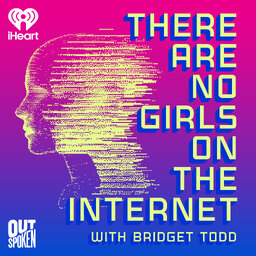Women are fighting for change in Iran after the death of Mahsa Amini
22 year old Mahsa Amini died in custody after being stopped by the morality police in Iran. And now, women are leading the uprising.
Negar Mortazavi, host of the Iran Podcast, explains why women and their allies are taking to the streets in Iran.
LISTEN TO THE IRAN PODCAST: https://anchor.fm/theiranpodcast
FOLLOW NEGAR: https://twitter.com/NegarMortazavi
In 1 playlist(s)
There Are No Girls on the Internet
Marginalized voices have always been at the forefront of the internet, yet our stories often go over…Social links
Follow podcast
Recent clips

BAFTAs racial slur; Nicki Minaj bot network; TikTok “Psychic” faces Defamation trial for University of Idaho murders – NEWS ROUNDUP!
1:16:39

A TANGOTI Announcement We've Been Sitting On
47:34

Chris Pratt Is Hawking an Anti-Abortion Prayer App; Elon's Grok Is Doxxing Women; DOGE Bros Let ChatGPT Do Their Job; Trump’s Big DEI Loss – NEWS ROUNDUP
1:07:04
 There Are No Girls on the Internet
There Are No Girls on the Internet